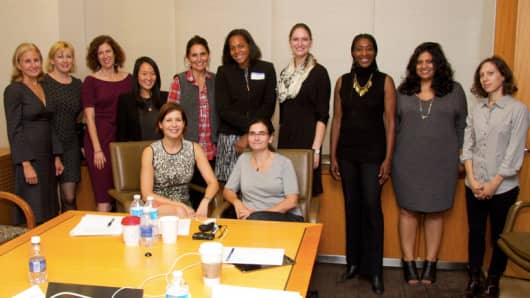These are the best of times and worst of times for women entrepreneurs.
Thanks to record-breaking levels of investment in start-ups, women potentially have access to millions in start-up capital in a way that was unthinkable one generation ago. And yet, according to a recent National Women's Business Council study, most women launch their businesses with less than half the amount of capital as their male counterparts, and a majority feel they lack the training and support they need to expand beyond sole-proprietary, low-grossing companies.
Only 3 percent of all women-run businesses make revenues of $1 million, while a majority of women are "solopreneurs" who have no employees and revenues below US$200,000. Women are also twice as likely as men to cite running out of cash as the main cause of shutting their doors. Why the gap?





